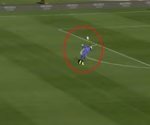Operative Headquarters: Fewer migrants in Bosnia

Migrant arrivals in Bosnia have dramatically decreased over the past week and there are fewer migrants staying in the country in general, members of the Operative Headquarters, a body composed of Bosnian officials which was set up to assess the migrant crisis, concluded on Thursday.
Oglas
The number of migrants currently in Bosnia is about 2,500, the officials concluded.
Thousands have entered Bosnia on their way toward EU countries since the year began. The country became a significant transit point after numerous surrounding countries closed their borders, with Bosnia now being described as a "migrant hotspot" among local officials.
The next stop after Bosnia is mostly the country’s western neighbour, Croatia. Croatian border police, however, often turn them back.
Oglas
The northwestern towns of Bihac, Cazin and Velika Kladusa are located near Croatia’s border and are strongly affected by the situation. Residents of the towns have been protesting over the way the government is handling the situation.
The Operative Headquarters has throughout the past several months been meeting weekly to discuss how to tackle the issue.
The establishment of a new migrant centre in Bihac and another one in Usivak, near Sarajevo, has significantly helped the situation, the body concluded.
The repurposing of the Student’s Home in Bihac into a migrant centre is also almost completed, so the migrants will be sheltered from the cold weather during the winter months.
Oglas
Facilitation capacities in Velika Kladusa were also discussed at the meeting. The migrants in this area are currently staying in the halls of the local ‘Miral’ company. Local authorities in the town, however, are obstructing the process of accommodating the migrants there, the officials concluded.
The officials pointed out that Croatian authorities are regularly sending migrants back to Bosnia, even if they find them deep within their territory and away from the border crossings, which is against the procedures in the Readmission Agreement between the two countries.
Security Minister Dragan Mektic is to inform Croatian officials of this.
Another conclusion the officials adopted is that all institutions tending to the migrant issue should put together plans on how to protect children from sexual abuse.
Kakvo je tvoje mišljenje o ovome?
Učestvuj u diskusiji ili pročitaj komentare
Oglas
Kakvo je tvoje mišljenje o ovome?
Učestvuj u diskusiji ili pročitaj komentare
Oglas





 Srbija
Srbija
 Hrvatska
Hrvatska
 Slovenija
Slovenija



























































